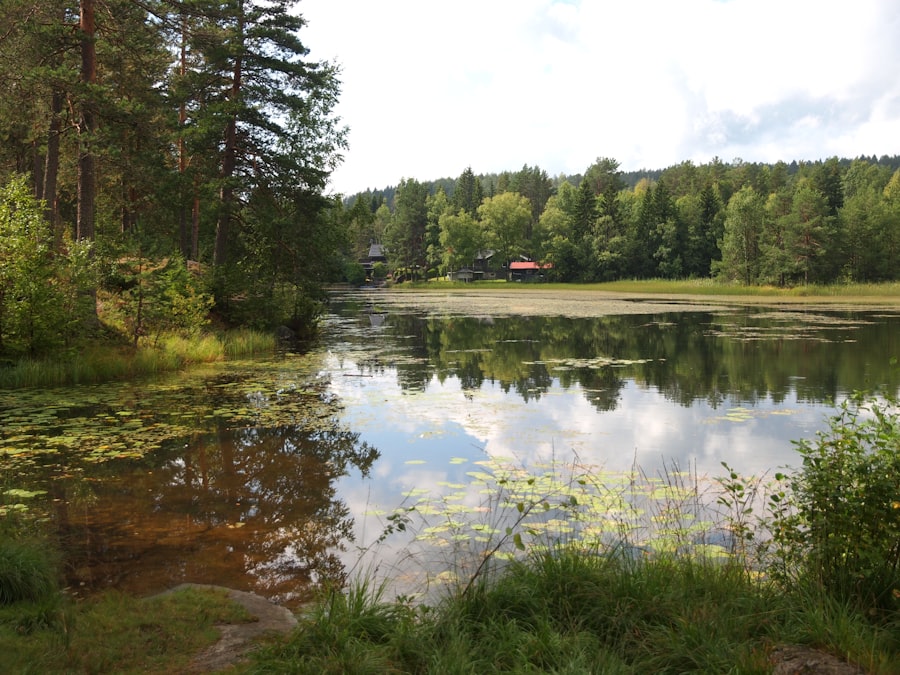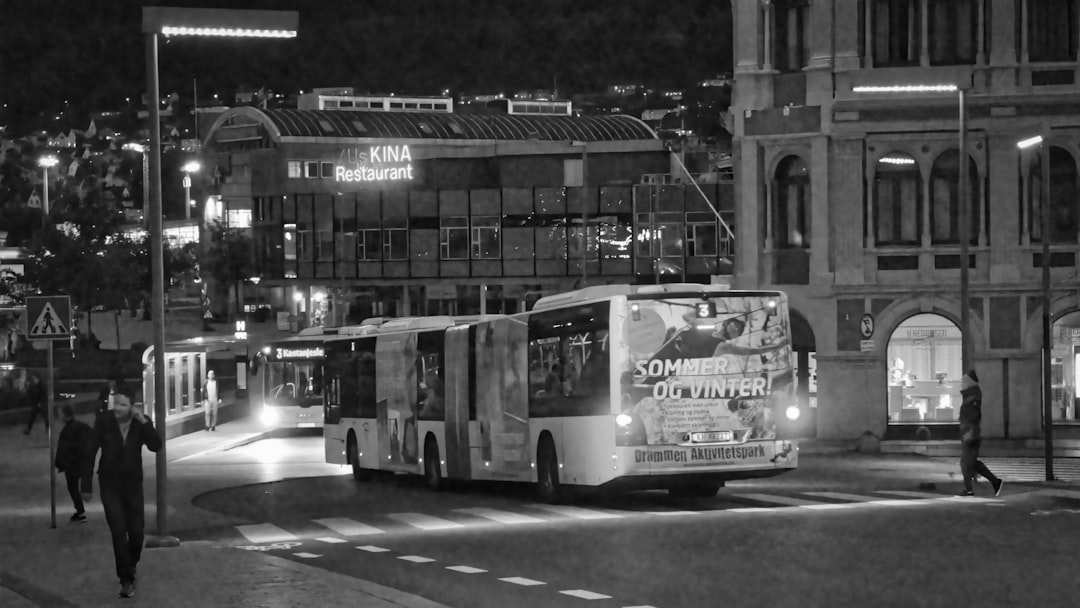In an increasingly globalised world, the phenomenon of Third Culture Kids (TCKs) has gained significant attention, particularly in countries like Norway, which is known for its welcoming attitude towards expatriates. The Norway Relocation Group plays a pivotal role in assisting families as they navigate the complexities of relocating to this beautiful Scandinavian nation. With their expertise, they provide invaluable support in understanding the unique challenges faced by TCKs, ensuring that families can settle in smoothly and thrive in their new environment.
This article delves into the intricacies of raising a Third Culture Kid in Norway, exploring the various aspects that contribute to their development and well-being. As families embark on their journey to Norway, they often find themselves grappling with the nuances of a new culture, language, and social dynamics. The Norway Relocation Group offers tailored services that help ease this transition, from finding suitable housing to connecting families with local resources.
By understanding the specific needs of TCKs, the group empowers parents to create a nurturing environment that fosters growth and adaptation. This article will explore the concept of TCKs, the challenges they face, and how families can effectively support their children in this unique cultural landscape. Plan your relocation with confidence. Book a personal meeting with the Norway Relocation Group today.
Summary
- Third Culture Kids (TCKs) in Norway often face unique challenges due to their multicultural upbringing.
- TCKs are individuals who have spent a significant part of their developmental years outside their parents’ culture, leading to a unique cultural identity.
- Raising a TCK in Norway can be challenging due to the need to navigate language and cultural barriers.
- TCKs in Norway often struggle with balancing multiple cultural identities and dealing with repatriation issues.
- It is important to support TCKs in Norway by addressing the impact of frequent relocations and fostering a sense of belonging and community.
Understanding the concept of Third Culture Kids
Third Culture Kids are individuals who have spent a significant part of their developmental years outside their parents’ culture. They often find themselves caught between their parents’ cultural heritage and the culture of the country in which they are living. This unique position allows TCKs to develop a rich tapestry of experiences and perspectives, but it can also lead to feelings of dislocation and confusion.
In Norway, where many expatriates settle for work or study, TCKs are becoming increasingly common, bringing with them a diverse array of backgrounds and experiences. The term “Third Culture” refers to the blend of influences that TCKs experience as they navigate their lives in a foreign country. They may adopt elements from both their parents’ culture and the host culture, creating a unique identity that is distinct from either.
This blending can be enriching, providing TCKs with a broader worldview and enhanced adaptability. However, it can also lead to challenges in forming a cohesive sense of self, as they may struggle to reconcile differing cultural expectations and norms.
The challenges of raising a Third Culture Kid in Norway

Raising a Third Culture Kid in Norway presents a unique set of challenges for parents. One of the most significant hurdles is the potential for cultural dissonance. Parents may find that their own cultural values clash with those of Norwegian society, leading to confusion for their children.
For instance, while Norwegian culture places a strong emphasis on independence and self-reliance, parents from more collectivist backgrounds may prioritise family cohesion and interdependence. This clash can create tension within families as they navigate differing expectations. Additionally, TCKs often face difficulties in establishing lasting friendships.
The transient nature of expatriate life means that children may frequently change schools or move to new neighbourhoods, making it challenging to form deep connections with peers. In Norway, where social circles can be tight-knit and exclusive, TCKs may feel isolated or struggle to integrate into local communities. Parents must be proactive in helping their children build relationships and find support networks that can ease this transition.
Navigating language and cultural barriers
Language is one of the most significant barriers that Third Culture Kids encounter when moving to Norway. While many Norwegians speak English fluently, TCKs may still feel the pressure to learn Norwegian to fully engage with their peers and integrate into society. This challenge can be daunting for children who are already grappling with the complexities of adapting to a new culture.
Parents play a crucial role in supporting their children’s language acquisition by encouraging them to participate in local activities and providing resources for learning. Cultural barriers also pose challenges for TCKs as they attempt to navigate social norms and expectations in Norway. For instance, concepts such as “Janteloven,” which emphasises humility and discourages boasting about one’s achievements, may be unfamiliar to children from cultures that celebrate individual success.
Parents must help their children understand these cultural nuances while also validating their own backgrounds. This balance is essential for fostering a sense of belonging and acceptance in both their home culture and Norwegian society.
Balancing multiple cultural identities
One of the most enriching aspects of being a Third Culture Kid is the opportunity to embrace multiple cultural identities. However, this can also lead to internal conflict as children grapple with questions of belonging and identity. In Norway, TCKs may feel pressure to conform to local customs while simultaneously wanting to honour their parents’ heritage.
This balancing act can be particularly challenging during adolescence when identity formation is at its peak. Parents can support their children by encouraging open discussions about cultural identity and providing opportunities for them to engage with both their home culture and Norwegian culture. Celebrating traditional holidays, cooking familiar meals, or participating in cultural events can help TCKs maintain a connection to their roots while also embracing their life in Norway.
By fostering an environment where multiple identities are celebrated rather than seen as conflicting, parents can help their children develop a strong sense of self.
Dealing with repatriation issues

Repatriation is another significant challenge faced by Third Culture Kids, particularly if families plan to return to their home country after an extended period abroad. The prospect of moving back can evoke mixed emotions for TCKs who have developed strong ties to their host country. They may feel excitement about returning home but also sadness at leaving behind friends and experiences in Norway.
Parents must prepare their children for the possibility of repatriation by discussing what it might entail and helping them process their feelings about the transition. Engaging in conversations about the differences between life in Norway and their home country can provide valuable insights and help ease the adjustment process when the time comes. Additionally, maintaining connections with friends from both cultures can provide emotional support during this challenging transition.
Addressing the impact of frequent relocations
Frequent relocations are often an inherent part of life for Third Culture Kids, leading to both opportunities and challenges. While moving can expose children to new experiences and cultures, it can also disrupt their sense of stability and continuity. In Norway, where many expatriates live temporarily for work or study, TCKs may find themselves moving every few years, making it difficult to establish roots.
To mitigate the impact of frequent relocations, parents should focus on creating a sense of stability within the family unit. Establishing routines and traditions that remain consistent regardless of location can provide comfort for children during times of change. Additionally, encouraging children to document their experiences through journals or scrapbooks can help them process their feelings about moving while also preserving memories from each location.
Supporting emotional and social adjustment
Emotional and social adjustment is crucial for Third Culture Kids as they navigate life in a new country like Norway. Parents must be attuned to their children’s emotional needs and provide support as they encounter various challenges related to cultural adaptation. Open communication is key; parents should create an environment where children feel comfortable expressing their feelings about their experiences.
Encouraging participation in extracurricular activities or community events can also facilitate social adjustment by providing opportunities for TCKs to meet peers with similar interests. In Norway, there are numerous clubs and organisations catering to various hobbies and sports, allowing children to connect with others while developing new skills. By fostering these connections, parents can help their children build a supportive network that eases the transition into Norwegian society.
Accessing education and healthcare in a new country
Navigating education and healthcare systems in a new country can be daunting for expatriate families. In Norway, education is highly regarded, with a strong emphasis on inclusivity and equal opportunities for all children. However, parents must familiarise themselves with the local education system to ensure that their Third Culture Kids receive the support they need.
The Norway Relocation Group offers valuable resources for families seeking information about schools and educational options available in Oslo and beyond. They can assist with finding suitable schools that align with a child’s needs while also providing guidance on navigating enrolment processes. Similarly, understanding healthcare access is essential for ensuring that TCKs receive appropriate medical care during their time in Norway.
Fostering a sense of belonging and community
Fostering a sense of belonging is vital for Third Culture Kids as they adapt to life in Norway. Parents should actively seek out opportunities for their children to engage with both local communities and other expatriate families. Building connections with other TCKs can provide valuable support as children navigate similar experiences and challenges.
Participating in community events or joining local clubs can help TCKs feel more integrated into Norwegian society while also allowing them to share aspects of their own culture with others. The Norway Relocation Group can assist families in identifying community resources and activities that promote social engagement, ultimately helping children develop a sense of belonging in their new home.
Tips for raising a Third Culture Kid in Norway
Raising a Third Culture Kid in Norway presents unique challenges but also offers incredible opportunities for growth and development. By understanding the complexities associated with cultural adaptation, parents can better support their children through this journey. Open communication about cultural identity, proactive engagement in local communities, and fostering emotional resilience are essential components of raising TCKs successfully.
As families embark on this adventure together, they should remember that resources are available to help ease the transition. The Norwegian Language School (NLS) offers excellent courses designed specifically for expatriates looking to learn Norwegian, which can significantly enhance integration into society. By investing time in language learning and actively participating in community life, families can create an enriching environment where Third Culture Kids thrive amidst the beauty of Norway’s landscapes and culture.
In conclusion, while raising a Third Culture Kid in Norway may come with its set of challenges, it is also an opportunity for families to embrace diversity and foster resilience within their children. With the right support systems in place—such as those provided by the Norway Relocation Group—families can navigate this journey successfully while ensuring that their children grow into well-rounded individuals who appreciate the richness of multiple cultures.

